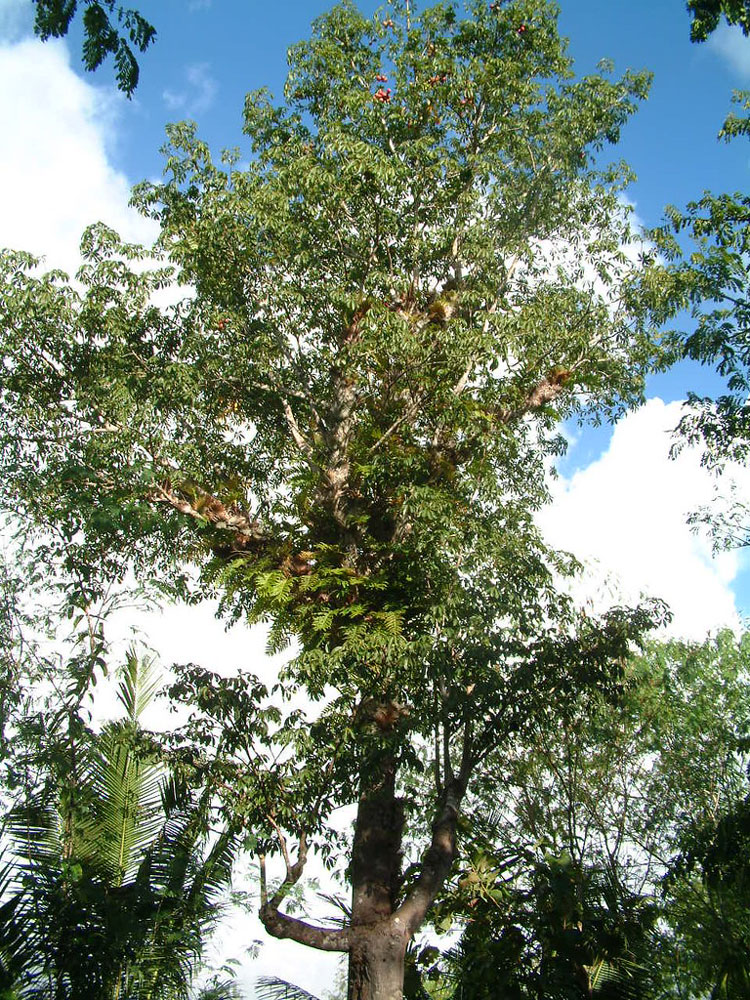Jangli Badam - Java Olive Tree

Sterculia foetida
Summary
Scientific Classification
Kingdom: Plantae
Division: Magnoliophyta
Class: Magnolipsida
Order: Malvales
Family: Malvaceae
Genus: Sterculia
Species: S.foetida
Scientific Name: Sterculia foetida L.
Common names
English : Hazel sterculia, Java Olive, Skunk Tree, Indian Almond.
Hindi: Jangli Badam.
Kannada: Bhatala Penari.
Marathi: Jangli Badam.
Discription
- Habit and Habitat: Large deciduous tree with horizontal, whorled branches. Occurs in semi-open tropical forests and coastal areas.
- Distribution: Australia, Bangladesh, Djibouti, Eritrea, Ethiopia, India, Indonesia, Kenya, Malaysia, Myanmar, Oman, Pakistan, Philippines, Somalia, Sri Lanka, Tanzania, Thailand, Uganda, Yemen, Republic of, Zanzibar.
- Morphology:
Leaf: : Palmately compound leaves are clustered near the branch tips. Each leaf has a long petiole and consists of 5 - 9 elliptic to lanceolate leaflets (10 - 17 cm long) with entire leaf margin.
Inflorescence: Panicles.
Flowers: This species is dioecious, having male and female flowers on separate trees. Pendent, foul-smelling flowers lack petals, but have a 5-lobed, red calyx that resembles petals. The lobes are deeply divided and curled backwards near the tip.
Androecium: staminal column curved, hairy at base, bearing 10-15 anthers at its tip.
Gynoecium: ovary 5, free, superior, downy, each with 20 ovules, gynophore stout; styles deflexed, hairy; staminodes subsessile in a ring beneath the carpels.
Fruit: Fruit an aggregate of follicle of 1-5, scarlet, boat shaped, 5-lobed, woody, glabrous.
Seeds: Many, black, smooth, exalbuminous, with a small, yellow caruncle at the base.
Flowering and Fruiting time: March-May. - Propagation: Propagate by seed or stem cuttings.
- Importance:
a. Cultivated in the gardens.
b. The fruits possess sweet oily edible pulp. The seeds are eaten raw or roasted but if consumed in large quantities, they cause dysentery.
c. The tree exudes a gum resembling tragacanth which is used for book binding and similar work.
d. Used locally for doors of huts, dugout canoes, boat planking, guitars and carved toys. Oil from the seed is extracted on a local scale to be used in medicine. - Location: in front of New Building.
 Trees of GSS Project supported by Makerspace Belgaum Website concept and designe by
Trees of GSS Project supported by Makerspace Belgaum Website concept and designe by